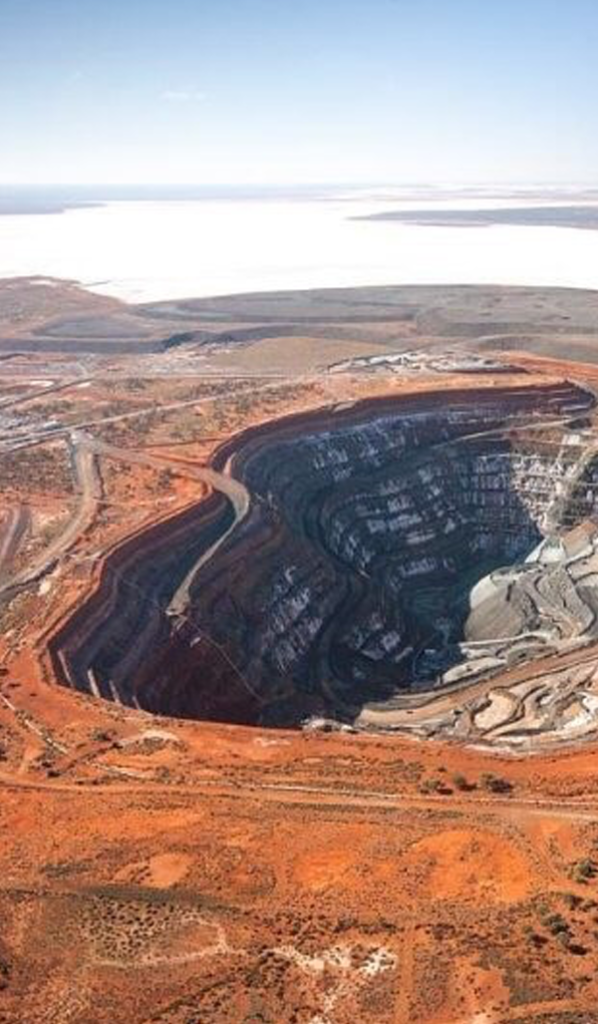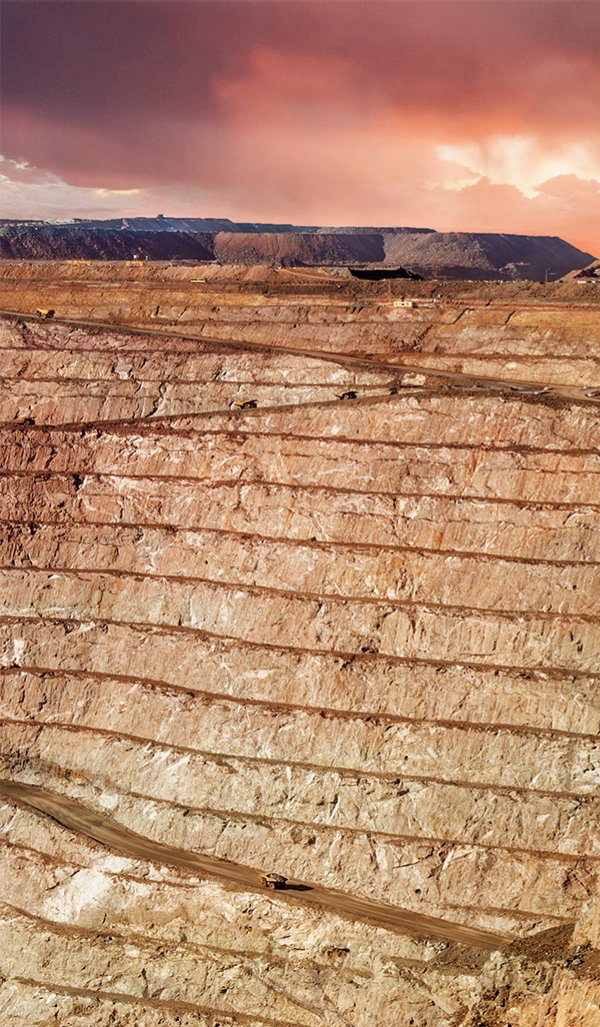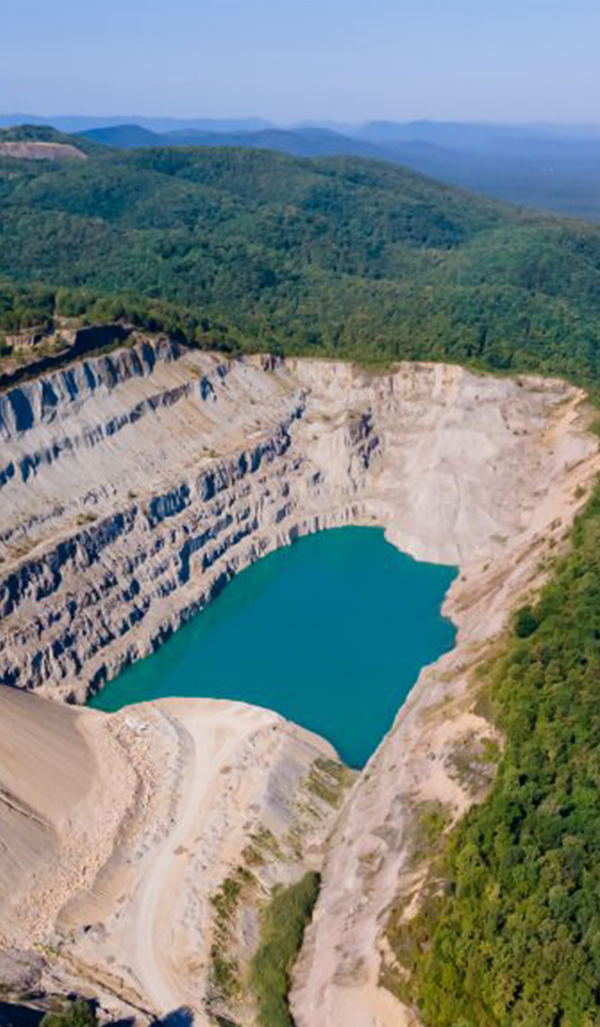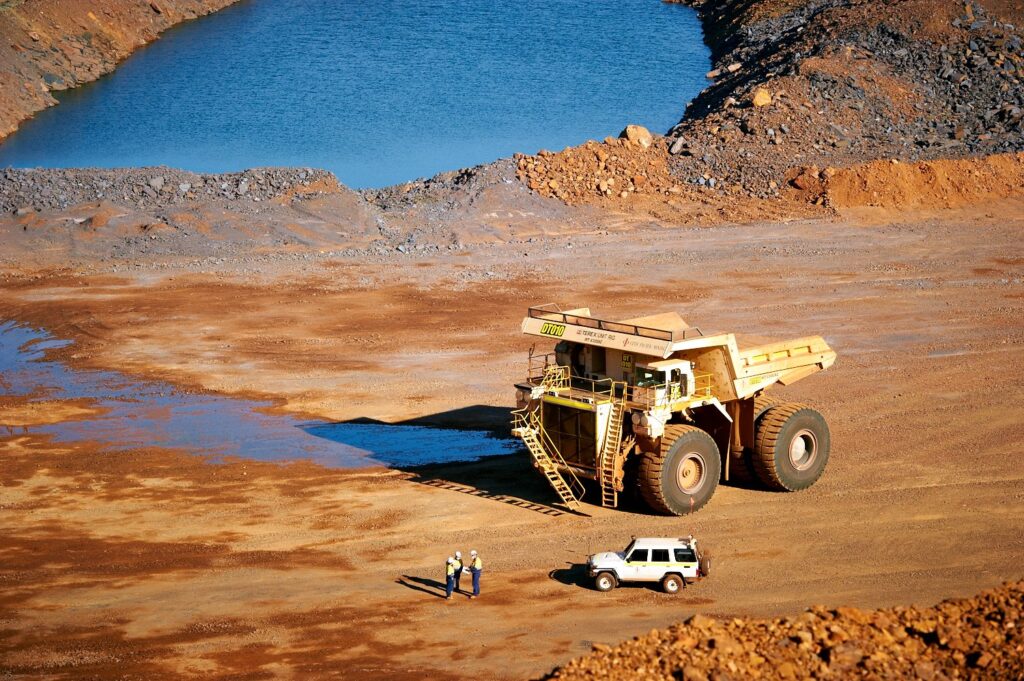
Chasing Rare Earths
About CS: I am a geologist so mostly what I’ve been doing for the last decade is looking at rare earth deposits in Australia and how they formed and whether there is potential for discovery for more of them obviously with the scope that Australia could be an alternative supplier of rare earth to China.
It’s almost like new gold with companies buying one another and seeking deals with foreign governments to set themselves up – it must be a very exciting field to work in?
It is, it probably is like gold in a way because it can collapse very quickly as well. In some ways the amount of rare earths we need is relatively small when you compare it to something like copper for example, because of the volumes, and as a raw product China doesn’t actually make a lot of money out of it, it’s more the strategic advantage of being the global supplier and now more recently they’ve got into increasing the value through building the magnet etc themselves. So, I suspect a lot of the ups and downs in the industry and a lot of the people jumping on board are small players who are looking to maybe make a quick buck out of the industry and they probably won’t or a lot of it is speculation or prospecting that may lead to nothing but among all that there are some genuinely interesting prospects.



So it’s an area subject to a lot of speculation?
I think it’s probably accelerated because of the supply issue and the fact that China can change the market or the market can change anyway because smart people may come up with new magnets that don’t need much of these rare earths then that can cause the market to collapse as well. It’s a very volatile sector to be in, I think there are probably a lot of people interested now because the government is getting very interested and pushing to set up a sovereign supply and trying to support companies that are looking at new projects.
Why has China got so far ahead in this area?
Mostly because they are smart. There are 2 things. If you look at rare earths they are not commodities we’ve used for generations like most of your base metals, we’ve only really needed them since the technological developments of the last few decades and the US used to be the biggest producer they had a mine in California called Mount Pass but the problem with rare earths naturally in geological systems is they are almost always associated with uranium and sorium and that is obviously a problem in terms of radioactivity and with the Mount Pass mine in California they had issues with tailing ponds that leaked some radioactive material and there was a massive outcry from the local community obviously and that essentially led to that mine becoming unfeasible and at the same time the global politics at the time with the West looking to different parts of the world to provide cheap labour and with the globalization push and China saw it as an opportunity. They realized that these metals were going to be pretty important for the way society was going with the electrification and the digital society that we’re moving to and so they invested and they also have a very big ore deposit, a very rich rare earth ore deposit that helps but they made a strategic investment at that point that they were going to become the world’s supplier of this and do it relatively cheaply. They are paying a price for this, they were not so worried about the problems associated with radio activity etc and there a lot of health issues and environmental damage that’s been associated with that for quite a few decades but they are improving their record now for sure but that is basically how they got into the market. Initially it was producing the raw products but they’ve been pretty successful at attracting industries into China to upgrade them to do the manufacturing to make magnets and various other things.
What difficulties do Australia and the United States have in the process of establishing independent supply of rare earth?
Well the thing that has happened across the board in the US is they have moved away from mining generally – a lot of their normal metals like copper and nickel, they went away from Australia hasn’t and wont, mining underpins our economy to a large extent so we’ve kept that mining industry and we do have a number of projects that are probably more mature in terms of rare earth, so we’ve got Mount Weld and there’s things like Nolan’s Bore and various other things plus the mineral sands. So, we’re in a much better position in terms of our capacity to really increase the output of rare earths than the US but they are certainly keen and they are looking to increase their output too and they have a number of projects which certainly would not be feasible without a lot of government support but they are looking to get it going.
So are the US coming to Australia to look for ours?
Yes, it is already. So Lynus which is a mine in Western Australia they have a processing plant they are building in Kalgoorlie but they’ve just been given $40M by the Pentagon to set up a plant in Texas to supply rare earths directly to the US.

Are you aware of any problems with this project?
I haven’t but it’s obviously very early days. In the past the company had lots of problems with Malaysia with their processing plant.
So both governments and the industry associations etc will be watching this project very closely?
Yes, I think so. There are very high-level agreements between Australia, the US, Canada and India now as well so it probably sits very well with that high-level agreement. I have no direct knowledge of the agreement but most of the high-level government agreements are about separating the west’s reliance on China, that’s what it mostly comes down to. We are also looking in other places like finding Cobalt from the Congo, it’s also about diversifying supply
So how do you see Australia and the US cooperating into the future?
I think all Western countries are looking at an independent level to work out what they can do themselves because with Covid there is a renewed push across the board to be self-sufficient generally. Then because of the trading relationships in place with Canada and the US there is an assumption that it will work out ok.
The quad agreement with India, the US, Australia and Japan have pledged to co-operate in this area to catch up, to counter a significant strategic advantage?
Yes absolutely it is. I think catching up is exactly what they are trying to do. I think the West has relied on China to supply these metals. Even with the trade restrictions about a decade ago dealing with rare earths, it was a bit of a wake-up call but then a year later everything settled down and it was all forgotten for a while. This time I think they realise its much more serious and we’re seeing the imperative for the electrification of vehicles and the shift to renewable energies is much more serious now so the demand for these metals is likely to increase and there are defence applications as well obviously. So I think it’s really hit home in the past year and a half and so they are getting serious about it.
So the Australian Government is now getting into supporting rare earth manufacturers?
The government is still really finding its feet in terms of what it can do for supporting companies in general but at the moment it is looking at companies that are mining and how they can support them to get projects off the ground Recently the government has mandated its export credit agency, Export Finance Australia to support critical mineral projects. To qualify for support, a project must involve a mineral that is identified in Australia’s critical minerals strategy. The minerals must be for export and have necessary financial technical and commercial capacity. They can be eligible for other funding if the minerals have defence applications.
What’s your assessment of the Australian Government’s approach to this?
I think they are getting there, this is a big challenge because in the West we usually let our market solve our problems. If a commodity becomes valuable then the price goes up and then it becomes economic to mine it and that just won’t work with these things at the moment because there’s uncertainty in their ongoing supply so the big companies in Australia, the BHP’s and the Rio Tinto’s are not really looking at this very much because it’s too risky for their business model and that’s something that’s very difficult to deal with the way our society and our economy is driven over the past 100 years. So its difficult to deal with that there has to be high-level intervention, there have to be investments that aren’t market driven, to actually make this work and to see them really as of strategic importance for national security and I think that’s where they are getting to but they are still figuring out how they can do that effectively because as soon as you say you are going to support these things you get lots of people putting their hands up for money so it’s taking a bit of time, probably longer than we’d like but it is challenging. At least I think they are heading in the right direction.
Obviously this challenge would be easier if you had a different political system, but what other difficulties do you see for both Australia and the US in terms of establishing an independent supply of rare earth minerals?
There are probably a number. One of them is competing for price because our labour costs are too high. There are difficulties across the mining industry at the moment in that mining operations are going to have to move conditions where they operate with less water and less electricity, less energy in general and so that’s an ongoing challenge to the mining industry in the background anyway and that’s something like a rare earth miner or a lithium miner has to deal with. I think the biggest thing for the rare earth industry is radiation and when we talk to the rare earth companies they see this as one of their biggest issues in that it’s not just how they deal with it but deal with the public perception around radiation and radio activity is such a poisonous thing and we don’t want to be doing that in Australia.
So, having a free, independent media, scrutinising makes this work harder?
Yes it does. I’m not saying we shouldn’t have that but it’s a funny argument in a way because we are a uranium mining country we use uranium, so I think there are ways around it and I think that’s where government can help but it’s a very tricky situation because anything with uranium gets people’s back up and gets negative public opinion going very quickly. Similarly, the debates that occasionally break out about nuclear energy tend to come up and not last in the media very long because the general public don’t want to hear about it really. So, there are anomalies in Australia, we produce uranium, we already deal with uranium rich ore, we already deal with uranium rich ore in Olympic Dam in their copper and it is a uranium deposit but the general public is very adverse to nuclear energy as an energy source.
That’s always in the background, that’s a big player for a lot of these companies that as something that they struggle with.
Recently Shenghe Resources, a Chinese rare earth processing company, signed a memorandum of understanding (MOU) with Rarex, a Western Australian mining company, to supply rare earth minerals to China, what do you make of that in the current context?
I suspect the Australian Government is going to look very closely at that and I suspect there might be some changes there, I don’t have any specific information about what the government is doing but you so a lot now from my point of view that the Federal Government with universities for example, they are looking very closely at engagement with China in a research sense so I wouldn’t be surprised at all if that’s looked at very closely and scrutinised very closely by the government.
Do you think the Australian Government might intervene administratively with that?
I wouldn’t be surprised at all.
What do you know about the Makuutu mine in Uganda?
No I don’t know anything about that. I’ve heard a bit about Ionic but I have no knowledge about the project.
Do you think Australian companies will be looking to Myanmar in the future?
I think it will be a risky proposition for a while. Longer term in would be fruitful because it has prospective geology but a lot of companies has steered away even before the recent unrest because of the unstable political situation that so I suspect it will take a lot because they don’t really know where they stand in terms of their rights to explore for minerals and if they find something they don’t know if they can make anything out of it. There will be some who will see it as an opportunity but it’s very high risk and I don’t think any of the major companies would be interested.
So what happens next in this quest to catch up with the Chinese?
I think it’s pretty desperate but I think that we’ll probably catch up pretty quickly so there is not such a problem with resources, there are plenty of recognised resources in the ground, a lot of it is about the technology processing it and making that efficient and clean and that’s where there is uncertainty, there is a lot of uncertainty in that area and that’s the difference between how much it costs to get these metals, it’s the processing side than the in-ground geology problems
Does the recent agreement with the QUAD help overcome those difficulties?
Yes, I think so because at least there is a platform where expertise can be shared so, you know when people do develop something in a research capacity it can be taken out to be applied in an industrial setting that can happen anywhere in the world, then there’s a platform there where we can share that across western countries and that can be applied to a deposit in Australia as much as somewhere in Canada or whatever so I think it does help.


Leave a Reply